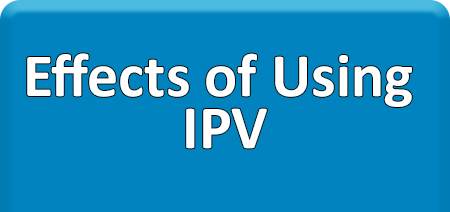VHA Social Work
Intimate Partner Violence Assistance Program (IPVAP) - VETERANS & PARTNERS - What Is IPV?
 |
 |
 |
 |
 |
In addition to a higher risk of experiencing sexual assault, those experiencing violence in a relationship may also have sexual health concerns, including sexually transmitted infections, unplanned pregnancy and/or complications in pregnancy.
Sexual Assault
Both men and women experience sexual assault. While women are more likely to experience rape by an intimate partner in their lifetime than men, 16% of men and 10% of women report experiencing other forms of sexual violence by intimate partners, such as sexual coercion and other unwanted sexual contact.1 *
Military Sexual Trauma
Military sexual trauma (MST) refers to sexual assault or repeated, threatening sexual harassment that occurred while the Veteran was in the military. MST may include experience of IPV.
Both women and men can experience MST during their service. VA has free services to help Veterans recover from MST. You do not need to have a VA disability rating (i.e., “service connected”) to receive these services and may be able to receive services even if you are not eligible for other VA care. For more information and resources, click the link to go to the VA “military sexual trauma” (MST) Website.
Sexually Transmitted Infections and HIV
People who experience intimate partner violence are at increased risk of acquiring a sexually transmitted infection (STI). Women who are in a violent relationship have four times the risk for contracting STIs2 * and are three times more likely to have a diagnosis of HIV/AIDS.3 * At the same time, those who are HIV+ are also more likely to experience abuse. Approximately 1 in 2 women who are HIV positive experience IPV.2 *
Although research has focused on women experiencing IPV, both men and women experience some of the same risk factors described below. 2 *• Sexual assault by an infected partner
• Unprotected sex and difficulty negotiating safer sex practices (i.e., condom use) without fear of being harmed
• Risk-taking behaviors such as injection drug use and trading money or drugs for sex
Complications in Pregnancy, Unplanned Pregnancy and Reproductive Coercion
It is estimated that 4-8% or 152,000 to 324,000 pregnant women experience violence in their relationship.4 * Intimate partner violence during pregnancy not only affects the health of the mother but is associated with increased chance of miscarriage or death, injury to the fetus, and low birth weight.5 *
Intimate partner violence is associated with unplanned pregnancy. In addition to sexual assault and difficulty in negotiating safer sex practices with their partner, as described above, people experiencing other types of IPV are more likely to experience reproductive coercion.5 *
Are you experiencing these or other health concerns?
- For emergency concerns, please call 911 or go to your nearest Emergency Department.
- For non-emergencies, contact your provider or send a MyHealtheVet Secure Message. You may also call the Nurse Advice Line at 1-877-252-4866.
Have you experienced sexual assault?
- Find help and resources through the RAINN National Sexual Assault Hotline at 1-800-656-HOPE (4673) or visit their website: rainn.org*.
Concerns about HIV?
- Talk with your provider, find out where to get tested and more through the Center for Disease Control Hotline, 1-800-CDC-INFO (1-800-232-4636) or find a testing site at - https://gettested.cdc.gov/*.
- Learn about screening, testing, treatment, and preventions services at the VA at - https://www.hiv.va.gov/
References
1.Breiding, M.J., Smith, S.G., Basile, K. C., Walters, M.L., Chen, J. & Merrick, M.T. (2014). Prevalence and Characteristics of Sexual Violence, Stalking, and Intimate Partner Violence Victimization - National Intimate Partner and Sexual Violence Survey, United States, 2011. MMWR 63:8 Atlanta, GA: National Center for Injury Prevention and Control, Centers for Disease Control and Prevention. https://www.cdc.gov/mmwr/pdf/ss/ss6308.*
2. Intersection of intimate partner violence and HIV in women. (2014). Atlanta, GA: National Center for Injury Prevention and Control, Centers for Disease Control and Prevention. https://www.cdc.gov/violenceprevention/pdf/ipv/13_243567_Green_AAG-a.pdf*
3. Sareen, J., Pagura, J. & Grant, B. (2009). Is intimate partner violence associated with HIV infection among women in the United States? General Hospital Psychiatry 31, 274-278. https://doi.org/10.1016/j.genhosppsych.2009.02.004*
4. Gazmararian, J.A., Petersen, R., Spitz, A. M., Goodwin, M. M., Saltzman, L. E., & Markes, J. S. (2000). Violence and reproductive health: Current knowledge and future directions. Maternal and Child Health Journal 4(2), 79-84. https://doi.org/10.1023/A:1009514119423*
5. Goodman, P. E. (2009). Intimate partner violence and pregnancy. In C. Mitchell & D. Anglin (Eds.), Intimate partner violence: A health-based perspective. 254-257. New York: Oxford University Press. https://global.oup.com/academic/product/intimate-partner-violence-9780195179323*
For more information or assistance, contact your local Intimate Partner Violence Assistance Program, Primary Care Social Worker, or other Provider. Women Veterans can also ask for the Women Veterans Program Manager.
Not yet a patient at VA? - Apply Now
Find help in the community by calling the National Domestic Violence Hotline at 1−800−799−7233 (SAFE) or TTY 1−800−787−3224.
If you’re experiencing an emotional crisis or having thoughts of suicide, call the Veterans Crisis Line: 1-800-273-8255 and Press 1 or TTY 1-800-799-4889
* Links with an asterisk (*) next to them will take you outside the VA website. VA is not responsible for the content of the linked site. This link does not constitute endorsement of the non-VA website or its sponsor.























